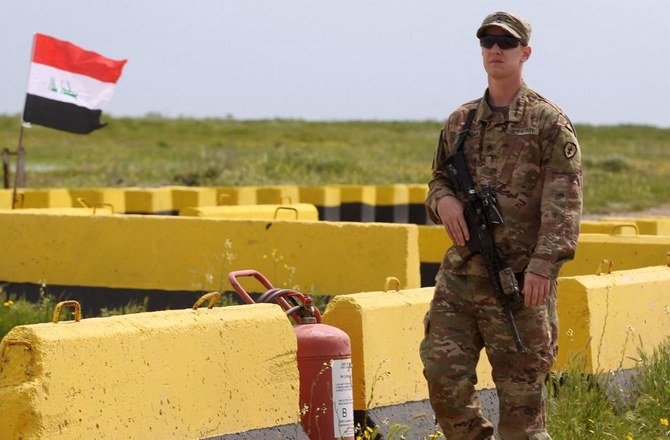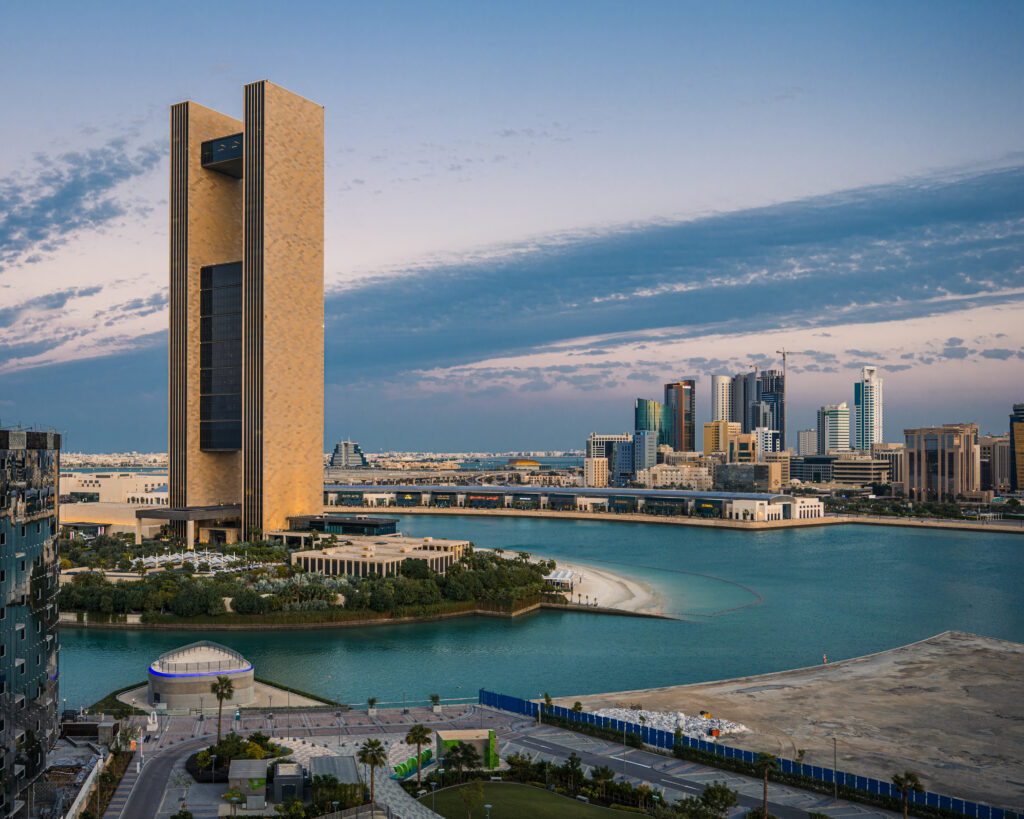BAGHDAD: A drone attack has been carried out on a military base in Iraqi Kurdistan that hosts American troops, without causing any casualties, the US-led coalition said Saturday.
The attack comes with Iraqi Prime Minister Mustafa Al-Kadhemi expected to meet US President Joe Biden in Washington on Monday to discuss a possible full US troop withdrawal from his country.
“An unmanned aerial system impacted a coalition base in Kurdistan” in the early hours of Friday, coalition spokesman US Colonel Wayne Marotto said in a statement.
“There were no casualties and no damage as a result of the attack,” he said, adding “the United States and coalition forces will stay vigilant and maintain the inherent right to self-defence.”
Iraqi Kurdish media outlets said the attack targeted a base at Al-Harir, 70 kilometres (45 miles) northeast of Arbil, the capital of the autonomous Kurdistan region.
It was the latest in a spate of attacks on US military and diplomatic facilities in Iraq, blamed on pro-Iranian armed groups within a state-sponsored paramilitary force.
The United States still has around 2,500 troops deployed in Iraq, out of 3,500 men in the international coalition set up in 2014 to fight the Daesh group.

Coalition’s Brigadier General Vincent Barker (R), Iraq’s Staff Major General Mohammad Fadhel Abbas (C) and Iraq’s Airforce Major General Shehab Zahed Ali (L) attend a pullout ceremony at the Qayyarah air base, where US-led troops in 2017 had helped Iraqis plan out the fight against the Islamic State in nearby Mosul in northern Iraq, on March 26, 2020. (File/AFP)
Their departure is demanded by the pro-Iranian factions, which have been blamed for some 50 attacks against US interests in Iraq since the beginning of the year.
The Iraqi Resistance Coordination Committee on Friday threatened to continue the attacks unless the US withdraws all its forces and ends the “occupation.”
Most of the American troops deployed in the coalition, which helped defeat Daesh in Iraq in 2017, were withdrawn under former US president Donald Trump.
Those that remain are officially classed as advisers and trainers for Iraq’s army and counter-terrorism units.
“If there is no significant announcement on the withdrawal of troops, I fear that the pro-Iran groups may… increase attacks on the US forces,” Iraqi researcher Sajad Jiyad told AFP.
Such concerns are given weight by the leader of one such paramilitary group Asaib Ahl Al-Haq, who recently warned that “resistance operations will continue until all American forces have left Iraqi territory.”

An Iraqi soldiers stands guard in front US military air carrier at the Qayyarah air base, where US-led troops in 2017 had helped Iraqis plan out the fight against the Islamic State in nearby Mosul in northern Iraq, before a planned US pullout on March 26, 2020. (File/AFP)
Iraqi Foreign Minister Fuad Hussein, already in Washington for several days, has assured Iraqi media that “the talks will successfully establish a timetable for the withdrawal of American forces.”
But US media outlets have only pointed to a “redefinition” of the troops’ mission.
Ramzy Mardini, an Iraq specialist at the University of Chicago’s Pearson Institute, believes there will be no “radical change” in the US position.
The Biden-Kadhemi meeting may cosmetically be “shaped” to help the Iraqi premier alleviate domestic pressures, “but the reality on the ground will reflect the status quo and an enduring US presence,” he said.
Mardini points to “political costs” for Biden were he to authorize a full withdrawal of US troops, stemming from the catastrophic “legacy” of the 2011 withdrawal, which created a vacuum exploited by Daesh during their lightning 2014 offensive.

US Secretary of State Antony Blinken meets with Iraqi Foreign Minister Fuad Hussein at the State Department, on July 23, 2021, in Washington, DC. (File/AFP)
It took a three-year military onslaught, heavily supported by a US-led coalition at the invitation of Iraq, to wrest back all the urban centers the Sunni jihadists seized.
“The last thing that the US would want would be to quit Iraq and find themselves a few years later facing… a return by IS,” according to one diplomatic source who was referring to the Daesh group.
Daesh today operates from mountainous and desert regions, activating cells for attacks including Monday’s suicide bombing of a market in Baghdad’s Shiite district of Sadr City that officially killed 30.
Beyond the ever-present security issues, Kadhemi, in power for little over a year, is grappling with a cocktail of other crises three months ahead of a general election that threatens his tenure.
Severe electricity shortages, endemic corruption, a spate of murders of activists blamed on pro-Iran armed groups, the coronavirus pandemic and diminished oil revenues have all stoked renewed instability.
Kadhemi will therefore also seek to secure a softening of secondary US sanctions relating to Iran when in Washington, to help Iraq honor crucial transactions with its neighbor and tackle the power crisis, according to Jiyad.
Shortages during the stifling summer heat have been exacerbated by Iran suspending crucial gas deliveries in recent weeks, due to payment arrears of $6 billion that Baghdad is unable to settle, in part because of US sanctions on Tehran.
“The prime minister’s visit (to Washington) is inextricably tied with his electoral campaign,” according to Mardini.
“It’s part of an effort to shore up international and regional support” to help him revive a faltering domestic political base, he added.
AFP






















